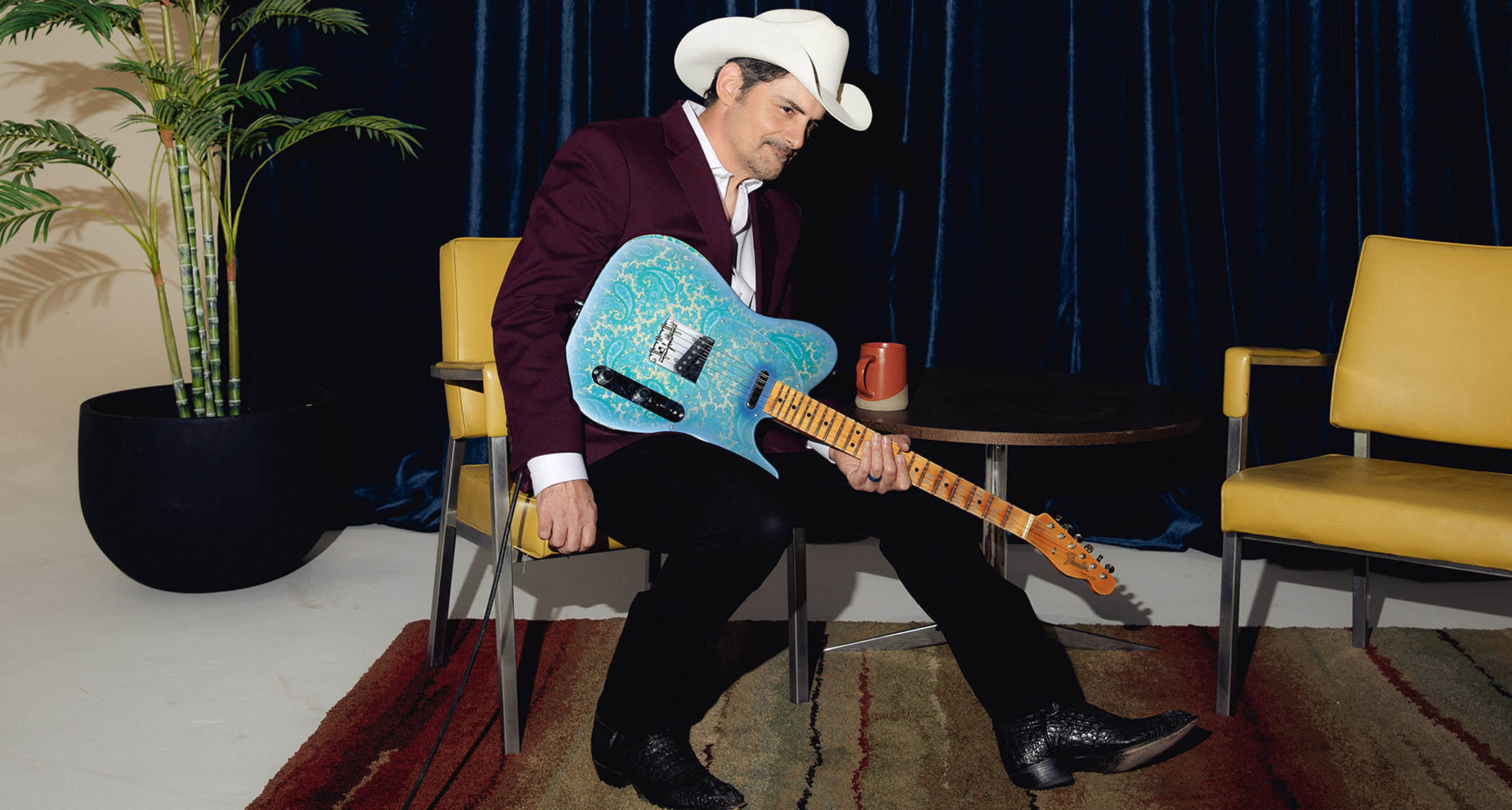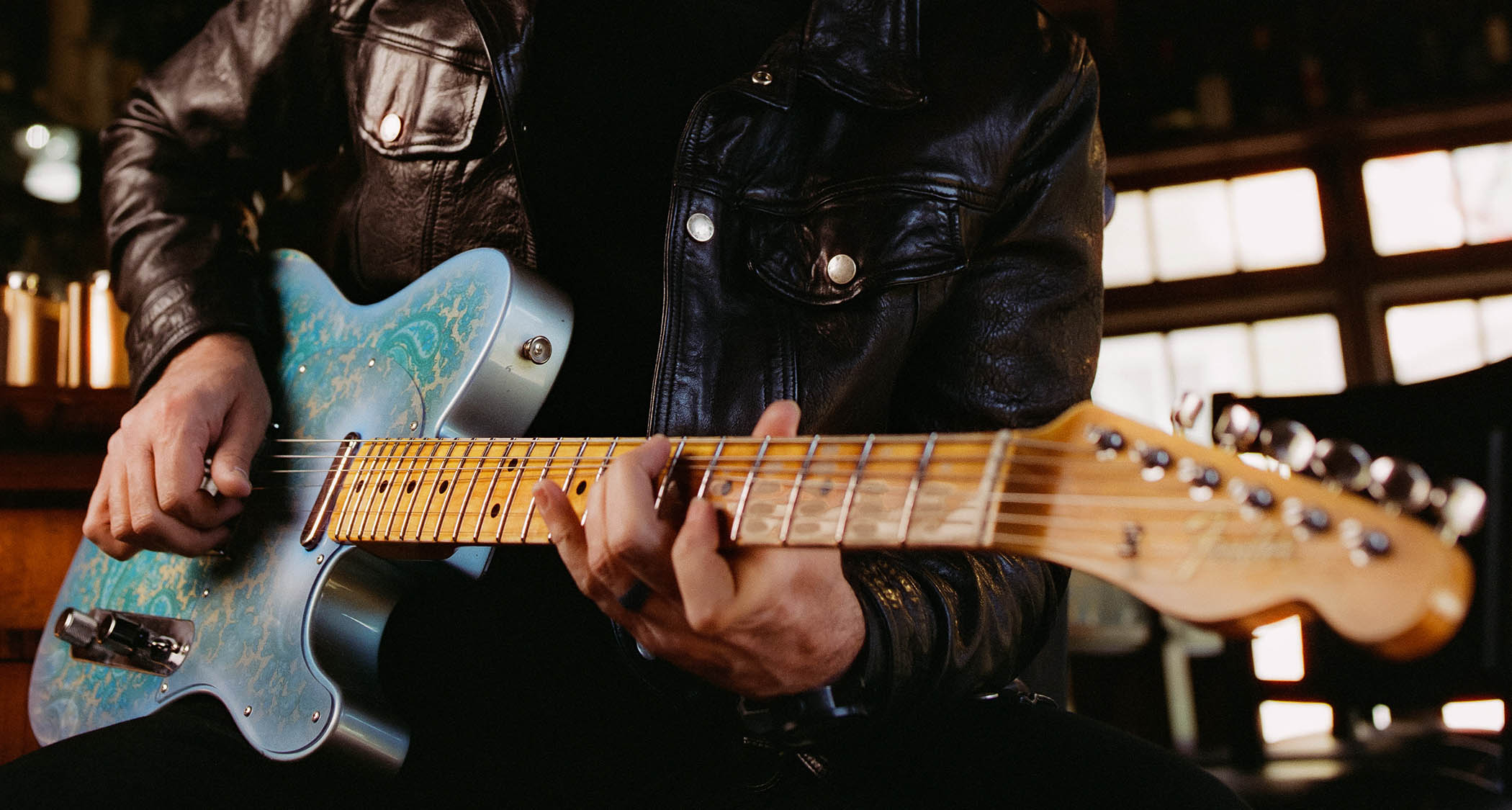“I like the real thing that happens when you dig in a little bit and the amp starts to cry for mercy”: Is the compressor pedal a country guitar essential? Brad Paisley doesn’t think so – and here’s why
The country virtuoso explains why compression is not an always-on effect for him – and neither is reverb for that matter

Want all the hottest music and gear news, reviews, deals, features and more, direct to your inbox? Sign up here.
You are now subscribed
Your newsletter sign-up was successful
So you want to play country guitar, what do you need? Well, let’s be real, a cowboy hat and boots is pretty much a sartorial non-negotiable. More fundamentally, the Telecaster is the industry standard electric guitar for country.
But Also, most people will tell you that a compressor pedal is a bona-fide essential component in making sure your chicken pickin’ and banjo rolling licks are clean and pop out. But not Brad Paisley.
Paisley might be one of the world’s preeminent country guitar players. He has the hat, the boots, the Telecaster. He has the southern accent and the chops (ridiculous chops). But he does not believe in always-on compression, instead arguing that, in most instances, the natural compression from a dimed tube amp is all he needs to get his tone.
“That’s a great question. I feel like it depends on the amp that you use. I use cathode-biased Vox-style amplifiers, either Dr. Z, an old Vox or a Trainwreck, or something based on that circuit that JMI [Corporation] did,” he says, speaking to MusicRadar upon the launch of his Fender Custom Shop 1967 ‘Lost Paisley’ Telecaster. “When I’m playing one of those and I can get up to volume, I don’t really use compression. Because I like what’s happening, the real thing that happens when you dig in a little bit and the amp starts to cry for mercy. And then when you pull back and it becomes cleaner.”

There are, however, occasions when Paisley will use a compressor. This is 2025. There are often limits placed on stage volume – especially on televised broadcasts.
Also, think of playing at home, or in small venues when the tube amp too loud to open up. These are the kinds of times when the compressor can really earn its corn. If Paisley can’t crank the amp, then he’ll reach for the comp.
“When it comes to certain things, I mean, a really good compressor pedal is a part of a sound for certain things,” he says. “I’ll use compression on certain things, now and then in the studio, or in a gig where – like there have been times on television – when you can’t get quite the volume that you would do, then I’ll use something like a compressor.
Want all the hottest music and gear news, reviews, deals, features and more, direct to your inbox? Sign up here.
“But for the most part, if you’re coming to a live gig, at an outdoor amphitheater, in an arena in Europe or something, I’m not using compression. I’m playing too loud for that.”
We do not have firm data – Reverb’s end of year sales reports are the closest that guitar effects pedals has to a Billboard Hot 100.
But, anecdotally, most country players will swear that the compressor – typically the venerable MXR Dyna Comp – is the secret sauce in the relationship between their guitar and amplifier, applying a gentle or not-so-gentle squash to the transients in your sound and tightening it up.
For country, which was shred before shred was a thing, that can be invaluable. Paisley’s tastes are a little more exotic, preferring Swedish stompbox guru Björn Juhl’s BFJe designs.
“He makes some that are pretty hard to beat because I can put that on and you’ll swear there’s no compression,” says Paisley. “But it is there.” If you can find one of Juhl’s BFJe Pine Green Compressors secondhand online, that would make a good choice for the transparent compression Paisley is looking for.
Paisley’s thoughts on compression remind us that sometimes we look for a pedalboard solution to a tone quandary when there are easier answers elsewhere. Is a reverb pedal always necessary when every space that you play in has its own reverb, sound reflections off the walls, roof and floor?
For certain songs, it’s key, like a Duane Eddy-type sound or whatever. That reverb is a big deal. But especially on the fast stuff that I play, you can just keep the reverb out. I’m good without it
On occasion, those reflections are too much. Paisley has some thoughts on reverb, too. Again, it’s for special occasions. He leans on a slapback echo from a delay pedal to add a sense of space to his tone.
“Yeah, I’ll do it on certain things in the studio to get an effect, but I like slapback,” he says. “I just like a good old-fashioned, either analog or digital, delay from the old days, like a [Boss] DD2 or a DD-3 one of those, or if it’s analogue, something like a Way Huge or one of the old Maxons or something.
“And just a little bit, just that 120ms type of thing that goes on, and you pull that way down to where you don’t really hear it. That’s more of a sort of likeable stimulation of a room to me than than reverb. Reverb is its own effect. Like if you have good reverb, for certain songs, it’s key, like a Duane Eddy-type sound or whatever it might be. I mean, that reverb is a big deal. But especially on the fast stuff that I play, you can just keep the reverb out. I’m good without it.”
And if you are game for swapping out a reverb, or dialling it out from your amp, in favour of Paisley’s slapback approach, it might just yield some interesting results. Paisley argues that slapback changes his amp’s response and reacts to his picking dynamics better.
“When I’m playing, I play hard. I definitely, my right hand with the pick and fingers, I play hard,” he says. “Like I hit that. I sort of dig tone out of it that way, and so a little slapback, you can imagine, if you’re hitting that snap that’s like ‘whack!’ on the amp as you hit a note and then you have that ‘budd-ap!’ that second one also taxes the amp, and it does change the way it reacts and I think it’s cool.”
You can read the full interview with Brad Paisley, coming soon to MusicRadar.
Jonathan Horsley has been writing about guitars and guitar culture since 2005, playing them since 1990, and regularly contributes to MusicRadar, Total Guitar and Guitar World. He uses Jazz III nylon picks, 10s during the week, 9s at the weekend, and shamefully still struggles with rhythm figure one of Van Halen’s Panama.
You must confirm your public display name before commenting
Please logout and then login again, you will then be prompted to enter your display name.



